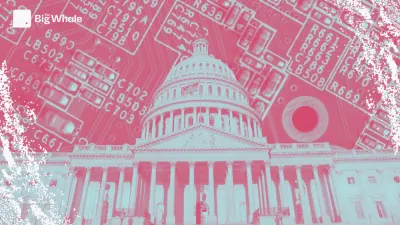Wednesday morning, there was little doubt that Donald Trump would return to the White House, after an election night in which his Democratic rival Kamala Harris struggled to win. The result will have multiple global implications, but the crypto industry can look to the future with peace of mind, having long endured hostility from the Biden administration.
Although Kamala Harris has appeared to soften her stance on the subject, the Republican has repeatedly presented himself as a resolutely pro-crypto candidate.
Here's a look at his commitments to the cryptocurrency sector.
Donald Trump: an assertive pro-crypto turn 👉 Building a national Bitcoin stockpile : Trump plans to keep bitcoins seized in criminal investigations as a "strategic reserve" to strengthen America's position in the digital economy.
👉 Creation of a Presidential Cryptocurrency Advisory Council : Trump wants to establish an advisory body made up of crypto industry experts to guide regulations according to the needs of the sector.
👉 Opposition to central bank digital currencies (CBDCs) : Trump rejects the idea of a digital dollar, which he sees as a threat to economic freedom. He even supports a bill to block any development of MNBCs by the Federal Reserve.
👉 Favouring American mining: Trump has only mentioned it on his social networks, but he said last May that he wanted the last bitcoins to be mined to be produced by American companies.
👉 Replacing Gary Gensler as head of the SEC: Trump said in Nashville in July that he intended to replace Democrat Gary Gensler as chairman of the SEC, one of the main US financial regulators and a staunch opponent of cryptos since his appointment in 2021. "Upon my inauguration, the persecution will stop, and the instrumentalisation against your industry will end," he assured. "I will appoint a new SEC chairman who believes America must build the future, not hinder it." In reality, the President does not have the power to sack the head of an independent agency, but it is traditional for the head to tender his resignation when a new head of state takes office. Among the potential successors mentioned recently is Dan Gallagher , current general counsel of Robinhood.
👉 Release of Ross Ulbricht: Trump has on several occasions expressed his intention to pardon the creator of the Silk Road platform, on which illegal bitcoin trading developed between 2011 and 2013. Ross Ulbricht is currently serving a life sentence in prison.
These commitments demonstrate Trump's desire to promote the adoption of cryptos while reassuring investors through more favourable regulation.
He has also opened his campaign to crypto donations and has partnered with a decentralised lending platform project, World Liberty Financial. The latter is nevertheless struggling to raise funds, despite the candidate's public support.
>> Read also: Yorick de Mombynes: "Trump is contributing to the rise of Bitcoin but is sawing off the branch he's sitting on"
The growing influence of crypto lobbies For this election, crypto players are among the campaign's biggest contributors. In 2024, 48% of corporate funding came from the crypto sector, according to a study by progressive think tank Public Citizen.
This influx of funds testifies to the growing influence of the crypto sector, which is determined to influence the outcome of upcoming legislative discussions.Fairshake, a non-partisan super PAC, has raised more than $200 million to support pro-crypto candidates and oppose those who are hostile to it. This funding, combined with a broadened voter base, gives crypto supporters hope for favourable regulatory advances.
Coinbase is Fairshake's biggest financial backer ($100 million injected in 2024). Ripple and the Andreessen Horowitz VC fund come in second and third respectively.
The list of donors can be viewed on the Electoral Commission website.
A pro-crypto Congress for 2025? Many observers expect to see a more crypto-friendly Congress in 2025. In addition to the election of explicitly pro-crypto candidates, this change in the legislative landscape could push forward bills aimed at structuring crypto markets and regulating stablecoins.
Two bills, FIT21 to regulate cryptos and a bill to regulate stablecoins , have already gained ground in the House of Representatives. In the event of a Republican majority in the Senate, these initiatives could be taken up and pushed to federal level, explains in The Block Alison Mangiero, director of the think tank Proof of Stake Alliance.
>> Read also: Understanding crypto prediction markets: how they work, their strengths and limitations
Heading 1 Heading 2 Heading 3 Heading 4 Heading 5 Heading 6 Lorem ipsum dolor sit amet, consectetur adipiscing elit, sed do eiusmod tempor incididunt ut labore et dolore magna aliqua. Ut enim ad minim veniam, quis nostrud exercitation ullamco laboris nisi ut aliquip ex ea commodo consequat. Duis aute irure dolor in reprehenderit in voluptate velit esse cillum dolore eu fugiat nulla pariatur.
Block quote Ordered list
Item 1 Item 2 Item 3 Unordered list
Text link
Bold text
Emphasis
Superscript
Subscript





